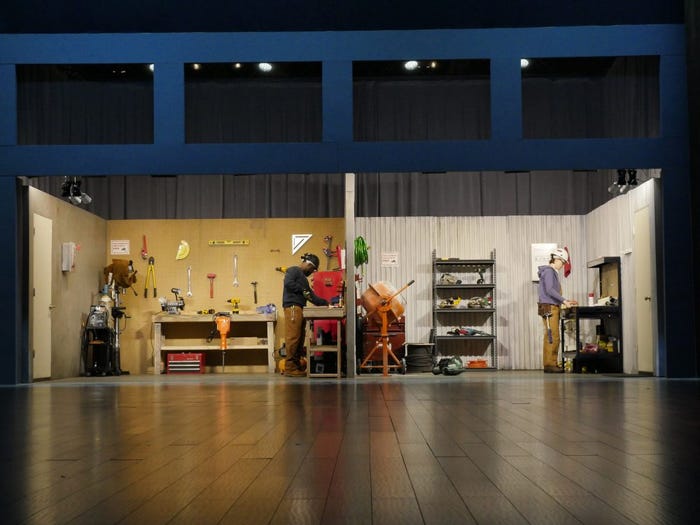Microsoft Unveils New Cloud Services for AI and Industrial Sensors
Microsoft Corp. is showing off new cloud services for AI and industrial sensors as well as database software tools designed to give Oracle Corp. a headache.
May 11, 2017

At the Build developer conference in Seattle, Chief Executive Officer Satya Nadella highlighted Azure cloud services for the Internet of Things, in which multiple sensors and smaller computing devices track data that can be analyzed by Microsoft’s cloud and AI tools. Where the company's previous focus has been on transferring that information back to its data centers to analyze, Azure IoT Edge will allow that computing to take place on-site in local computing devices to speed things up. The focus is initially on industrial applications, and Nadella demonstrated how this approach allows faster responses to things like malfunctioning equipment at Sweden's Sandvik Coromant, a maker of metal-cutting tools.
“You can't rendezvous all your data in the cloud,” Nadella said. “You want to be able to write logic that reacts to these events.”
He showcased a future scenario called AI for Workplace Safety (demo shown below), in which a construction site can tag pieces of equipment with properties like how it should be placed and used, as well as who can use it. Using AI software that can recognize what's going on from video and sensors, the system can trigger alerts if the machine isn't operated correctly or if there's a spill.

Nadella has made AI and internet-based computing key areas of investment for Microsoft as it looks for new sources of growth. In both spaces, Redmond, Washington-based Microsoft is squaring up to rivals like Amazon.com Inc. – Amazon Web Services is previewing a product to make IoT devices smarter too – as well as Alphabet Inc.'s Google. At the same time, it’s trying to grab business from older competitors such as Oracle, even as the database giant makes its own foray into the cloud.
Microsoft is providing an early look at new tools intended to help customers switch from Oracle’s database to Microsoft’s rival product in the cloud, Azure SQL Database as a Service. The tools let users of Microsoft's standard SQL product switch to the cloud version.
The company also unveiled a cloud database it regards as a significant technological leap by providing what it terms a “planet-scale” product. Called Azure Cosmos DB, it can provide a single database instance across multiple countries so that information is always up to date anywhere. Retailer Jet.com is among the customers already using it, Microsoft cloud chief Scott Guthrie said. Database is another front in the battle for cloud customers between Microsoft and Amazon.
While Microsoft is getting into newer technological spheres, its traditional businesses remain robust. Windows 10 is now in use on 500 million monthly active devices – the company had once been aiming for 1 billion in fiscal 2018 but its retreat from the phone market forced it to scale back volume ambitions. Office 365, the cloud versions of its popular workplace apps, has 100 million commercial users active each month.
Its Cortana voice-controlled search service has more than 140 million monthly active users. Microsoft said it signed agreements with Intel Corp. to create reference designs for companies that want to make Cortana devices and with HP Inc. to make devices – though no specific products were announced. Harman Kardon has said it will make a competitor to Amazon’s Echo device that uses Cortana for sale later this year.
This article was edited slightly from the original.
About the Author
You May Also Like






